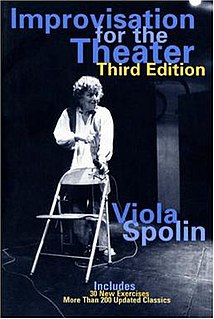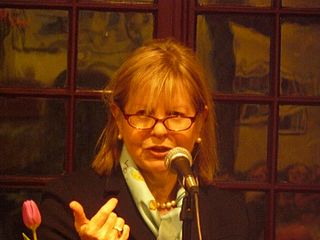A Quote by Anne Lamott
You get your intuition back when you make space for it, when you stop the chattering of the rational mind. The rational mind doesn't nourish you. You assume that it gives you the truth, because the rational mind is the golden calf that this culture worships, but this is not true. Rationality squeezes out much that is rich and juicy and fascinating.
Related Quotes
It is not rational to assume, without evidence, that rationality can disclose everything about the world, just because it can disclose some things. Our intuition in favour of rationality, where we are inclined to use it, is just that - an intuition. Reason is founded in intuition and ends in intuition, like a pair of massive bookends.
To go out of your mind once a day is tremendously important, because by going out of your mind you come to your senses. And if you stay in your mind all of the time, you are over rational, in other words you are like a very rigid bridge which because it has no give; no craziness in it, is going to be blown down by the first hurricane.
There was an idea that God created man different from other animals, because man was rational and animals had drives and instincts. That idea of a rational man that was specially created went out the window when Darwin showed that we evolved from animal ancestors, that we have instincts, much as do animals, and that our instincts are very important. It was a much more sophisticated, nuanced, and rich view of the human mind.
I realized that, to a large degree, I had kept my rational mind at bay my whole life. I just acted on intuition in terms of how I related to life. At some point, my rational mind started creeping in, and it would not shut up. I finally had to address it and confront it. I think most intelligent people, at a younger age than I have, begin to question some of the fundamental assumptions our society promotes. But me, I just rejected it without even considering it.
The fact that modern physics, the manifestation of an extreme specialization of the rational mind, is now making contact with mysticism, the essence of religion and manifestation of an extreme specialization of the intuitive mind, shows very beautifully the unity and complementary nature of the rational and intuitive modes of consciousness; of the yang and the yin.
When you look at any experimental work not directly related to economics, but trying to test rational behavior in other ways, experiments have conspicuously failed to show rational behavior. Macro evidence certainly suggests deviations from rationality, but I don't want to say the rationality hypothesis is completely wrong. If you have any introspective idea or experimental idea about people's behavior, it seems to be incompatible with the really full scale rational expectations.
I want to say, and this is very important: at the end we lucked out. It was luck that prevented nuclear war. We came that close to nuclear war at the end. Rational individuals: Kennedy was rational; Khrushchev was rational; Castro was rational. Rational individuals came that close to total destruction of their societies. And that danger exists today.
It is my mind, with its store of images, that gives the world colour and sound; and that supremely real and rational certainty which I call "experience" is, in its most simple form, an exceedingly complicated structure of mental images. Thus there is, in a certain sense, nothing that is directly experienced except the mind itself. Everything is mediated through the mind.





































